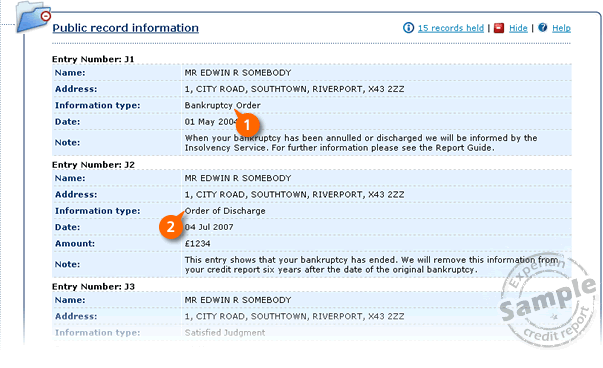Many of us are confused about the way that our credit report is used as a factor for approval when applying for credit.
Banks, short term money lenders, cell phone operators and even stores offering purchases on credit may access your credit report to understand what your current credit status is. They will look at your score overall as well as individual scoring criteria. Here is a list of some of the criteria that they might take into account before granting you a loan:

Name, identification number, address and contact details:
This could be used as a verification to check that you are who you say you are.
Employment Information:
This would give an indication to the lender that you are currently employed so that you can service the loan / finance you are applying for. The report may contain the length of service in your current job and also contains information on your previous jobs.
Your spouse’s name, ID number and employment data:
If you are married, the lender might check information relating to your spouse. The reason they do this is that they need to ensure that both of you are relatively credit worthy and that your spouse is not in any sort of financial crisis. This is particularly the case if you are married in community of property, which means that you are responsible for your spouse’s debt and vice versa.
Bankruptcies, judgments, other legal actions:
The lender will check to see if you have any judgments against you or other legal actions regarding debt. They will also check to see if you have filed for bankruptcy / insolvency. Due to changes in the National Credit Act bad judgments prior to April 1st 2014 will be removed from your record if you have settled the outstanding debt.
Repayment History:
The credit provider might look at your repayment record over a period of 90 days or longer. If you have made payments on time or before the due date as of April 1st 2014 you should not have a problem. All negative repayment history classifications prior to April 1st 2014 should have been removed from your record.
Current debt ratio:
You current debt ratio is how much you currently owe divided by how much credit you have access to. This is something that lenders will check to see how much outstanding debt you have in relation to the total potential debt you could apply for. The lower this ratio, the better your chances of securing the loan you have applied for.
Longevity of credit history:
The credit provider will check how long you have had your accounts open. . In general, the longer the better as long as you have made payments on time. This shows that you are capable of managing credit over extended periods of time.
Credit Application Enquiries:
Lenders will check to see if you have had multiple credit applications in the last 90 days or more. If you have multiple enquiries, this could indicate that you have been denied credit by other lenders and will reflect badly on your report.
Individual Record at Lender:
Even if you tick all the boxes above, it still does not mean that you will be granted the loan you need. The blog of the short term loans provider wonga advises people to regularly check their own credit record in case there are any mistakes on it or some unknown debt that you have forgotten about. By law you are allowed one free copy of your credit record every 12 months. A proactive approach to your own finances is the best course.
 All The Frugal Ladies Personal finance with a feminine touch
All The Frugal Ladies Personal finance with a feminine touch








